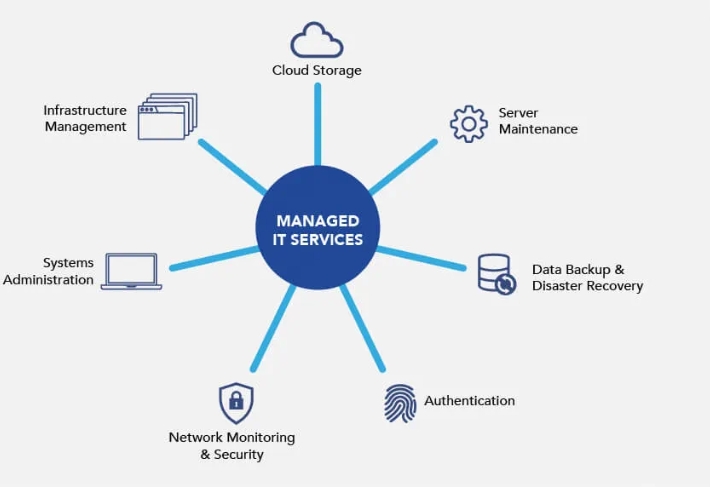
What Network Security Problems Can Network Security Providers Solve?
Protection Against Cyber Attacks
Network security providers offer comprehensive protection against various cyber threats, including malware, ransomware, phishing attacks, and more. These providers deploy advanced security measures such as firewalls, intrusion detection systems (IDS), and intrusion prevention systems (IPS) to monitor and protect your network from unauthorized access and malicious activities.
Data Loss Prevention
One of the most significant concerns for businesses is the potential loss of sensitive data. Network security providers implement data loss prevention (DLP) strategies that monitor, detect, and prevent data breaches. This ensures that critical information, such as customer data and intellectual property, is kept safe from unauthorized access or accidental leaks.
Compliance with Industry Regulations
Many industries are subject to strict data protection regulations, such as HIPAA for healthcare or GDPR for businesses operating in Europe. Network security providers help ensure compliance with these regulations by implementing necessary security measures and providing regular audits and reports. This not only helps avoid hefty fines but also builds trust with customers and partners.
Vulnerability Management
Network security providers conduct regular vulnerability assessments to identify and address potential weaknesses in your network. They use tools like penetration testing and automated scanning to detect vulnerabilities before cybercriminals can exploit them. By staying ahead of potential threats, these providers help reduce the risk of a security breach.
Incident Response and Recovery
Even with the best security measures in place, no system is entirely immune to attacks. Network security providers offer incident response services that include rapid identification, containment, and mitigation of security incidents. They also assist with recovery efforts, such as restoring data from backups and repairing compromised systems, to minimize downtime and ensure business continuity.
How to Choose a Reliable Network Security Provider
Assess Your Needs
Before choosing a network security provider, it's essential to understand your specific security needs. Consider factors such as the size of your business, the type of data you handle, and your industry’s regulatory requirements. This will help you identify the services you need, such as data encryption, DDoS protection, or managed detection and response (MDR).
Evaluate the Provider’s Expertise
A reliable network security provider should have extensive experience and expertise in the field. Look for providers with a proven track record of successfully managing network security for businesses similar to yours. It’s also essential to check their certifications, such as ISO 27001, which indicates that they follow best practices in information security management.
Consider the Range of Services
Different providers offer different levels of service, so it’s crucial to choose one that meets your needs. Some providers specialize in specific areas, such as cloud security or endpoint protection, while others offer a comprehensive suite of services. Ensure that the provider you choose can cover all aspects of your network security, from threat detection to incident response.
Check References and Reviews
Customer reviews and references can provide valuable insights into a provider’s reliability and quality of service. Reach out to current or past clients to ask about their experiences and whether they would recommend the provider. Additionally, check online reviews and ratings on independent review sites to get a broader perspective.
Evaluate Support and Response Times
In the event of a security incident, quick response times are critical. Choose a provider that offers 24/7 support and has a robust incident response plan in place. Ask about their average response times and how they handle emergencies to ensure that they can meet your expectations in a crisis.
Recommended Network Security Providers
Cisco Systems
Cisco is a well-known name in network security, offering a wide range of products and services, including firewalls, VPNs, and advanced threat protection. Cisco's solutions are designed for businesses of all sizes, making them a popular choice for companies looking for reliable and scalable security options.
Palo Alto Networks
Palo Alto Networks is a leading provider of cybersecurity solutions, known for its Next-Generation Firewalls (NGFWs) and advanced endpoint protection. Their products are designed to protect against both known and unknown threats, making them a top choice for businesses that require comprehensive security.
Fortinet
Fortinet offers a robust security fabric that integrates network security, access control, and cloud security solutions. Their products are particularly well-suited for businesses with complex networks and diverse security needs. Fortinet’s Security Fabric provides end-to-end protection and is highly regarded for its performance and reliability.
Symantec (now part of Broadcom)
Symantec has been a trusted name in cybersecurity for decades, offering a range of solutions including endpoint security, email security, and DLP. With a strong focus on threat intelligence, Symantec’s products are ideal for businesses that need to protect against sophisticated cyber threats.
Check Point Software Technologies
Check Point provides a comprehensive security architecture that includes network security, cloud security, and mobile security. Their solutions are known for their ease of management and strong performance, making them a popular choice for businesses looking for a unified security approach.
Conclusion
Network security providers play a crucial role in protecting businesses from the ever-growing threat of cyberattacks. By addressing key security challenges such as data loss, compliance, and incident response, these providers help ensure the safety and continuity of your business operations. When choosing a network security provider, it’s essential to assess your needs, evaluate the provider’s expertise, and consider their range of services. By selecting a reliable provider, you can safeguard your business against cyber threats and focus on growth with confidence.


